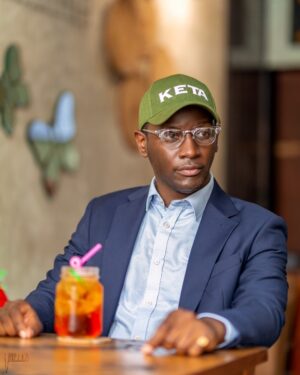Planning is a key ingredient in the recipe for social advancement of the Keta district, or any other rural community in Ghana. We can agree that a district without a straightforward vision – and the popular will to execute it – really has no exciting future to look forward to with pride.
Each brutal tidal wave that has hit the Keta district in recent times has been a rude reminder of the need for immediate action, yesterday. The last assault was in November 2021, when over three thousand residents were rendered homeless. How does one sleep peacefully if there’s always a chance that a lucid dream will be interrupted by an impromptu flood? How do constituents live if their income-generating livestock are constantly threatened by force majeure?
As terrible as the situation is, we’ve already ceded land to the sea at a frighteningly swift pace. In fact, the entire pre-independence economy of the Keta constituency has been washed away by the ocean. And if nation-builders fail to take responsibility and manipulate the environment, nature will continue to invade our space.
At this point, there’s no shred of doubt that Keta needs an autonomous legal framework and governance system to increase its chances of survival. There’s an inherent desire for living room. Today, we have a formidable challenge to reclaim land from the sea – but that’s an argument for the constituency’s next legislator to advance.

While architects, engineers, surveyors, masons and other strategic real estate experts collectively perform a crucial role in fashioning the district, it is the ancient city’s municipal assembly that wields the magic wand for transformation. Also, historically – as far as coastal management is concerned – the Awoemefia has always possessed an immense responsibility to not only understand the gravity of coastal erosion, but also temper the exuberance of our charged waters. And equally, the Yewe cult possess institutional wisdom on how best to avoid these periodic disasters.
Hence, the onus is on the royal institutions, local political leadership and age-old fraternities to unite the aforementioned professionals under one umbrella, so that a radical 21st century ecological plan for the Keta district will see the light of day. Once this blueprint is complete, it will then guide decision-makers to determine which and where necessary structures may be appropriately erected.
And of course, in this regard D K T Djokoto & Co – given its centuries-long royal association with land-use – is immaculately positioned to help the municipal government objectively conceive and craft a long-term policy. But the international community of diplomats and philanthropists must, in the spirit of universal brotherhood, be prepared to lend support and put their shoulders to the wheel so we can all drive change here in Keta, Ghana.
>>>the author, an Aŋlɔ royal, is managing partner at D. K. T. Djokoto & Co, a multi-disciplinary boutique a firm which, since 1950, has provided sincere guidance on commerce, real estate, public relations and political strategy to selected traditional royal houses, blue-chip businesses, high net-worth individuals and governments.










